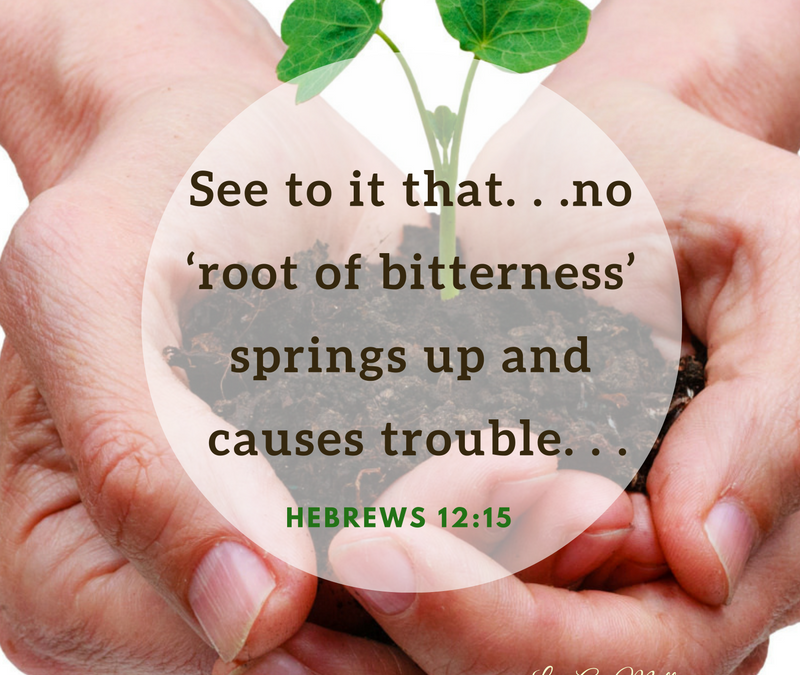by Lucy | May 9, 2017 | biblical counseling, biblical counseling, relationships
 Abused? Were you abused, phyically or sexually, in your marriage? In part 2 of this multi-part series on domestic violence, guest writer Jim Newheiser carefully looks at common assertions and takes a balanced view. This post appeared first here at the Biblical Counseling Coalition website and is reprinted with permission.
Abused? Were you abused, phyically or sexually, in your marriage? In part 2 of this multi-part series on domestic violence, guest writer Jim Newheiser carefully looks at common assertions and takes a balanced view. This post appeared first here at the Biblical Counseling Coalition website and is reprinted with permission.
Read Part 1 here: When to believe the victim, when to believe the abuser

I am thankful to God that many necessary and important books and articles are being written to increase awareness of physical and sexual abuse. Abuse affect both the society at large and the Christian community in particular. Spiritual leaders have been rightly admonished for their failure to protect at-risk women and children.
Battered wives have been wrongly told that if they were just more loving and submissive, their husbands would change and the abuse would stop. They are then wrongly sent back to take further verbal and physical beatings. Many church leaders need to repent of their failure to “rescue the weak and needy; [and] deliver them out of the hand of the wicked” (Psalm 82:4 ).
).
While I affirm the importance of understanding the dark nature of abuse and protecting the victims of abuse, I am concerned that some, in their zeal to correct the failure of the past, have swung too far the other way. This can lead to false accusations and unnecessary family breakups.
I would like to give a few examples of what I believe to be common overstatements, and for each one, I will describe the good intention behind the statements, the harm which can be caused because of imbalanced thinking, and a more balanced way of expressing the same concerns.
If You Feel Abused, Then You Were Abused?
ASSERTION: If you feel abused, then you were abused.
- The valid concern: This statement is often made to express the reality that abuse may have taken place even if the abuser does not recognize or acknowledge his behavior (yelling, pushing, bullying, coercion, threats, and intimidation) as wrong.
- The harm that can be caused: On the other hand, the Bible teaches that it is possible to wrongly interpret the words, actions, and motives of others (1 Corinthians 2:11).
For who knows a person’s thoughts except their own spirit within them? In the same way no one knows the thoughts of God except the Spirit of God. 1 Corinthians 2:11
For example, Eli falsely accused Hannah of drunkenness because her lips were moving as she prayed (1 Samuel 2:12ff). We cannot judge one person merely by the subjective feelings of another. For example, a man may be in a rush and accidentally bump into his wife (with whom he had had a recent conflict) as he turns a corner. She may accuse him of doing it deliberately to harm her when that was never his motive.
Words also can be misunderstood. What is taken by one person as angry and abusive might have never been intended as such. Nor might it have been interpreted this way by an objective third party.
Scripture reminds us: “Love hopes all things” (1 Cor. 13:7); in other words, love seeks to assume the best.
3. It would be better to say: A person who feels abused should be helped to objectively evaluate what has happened and to get assistance if genuine abuse has taken place. Part of this objective evaluation involves considering the ongoing pattern and cumulative effect of the accused person’s behavior, as well as the immediate accusation at hand. Proper evaluation over time keeps us from wrongly escalating the consequences for one individual incident while also not dismissing the whole situation because one incident wasn’t deemed as abusive.
Sometimes a Victim Has a Sin Issue Too
ASSERTION: It is never the victim’s fault.
- The valid concern: Many abusers claim that their victims are to blame because the victim provoked him or failed to be as good a wife or child as they should be. Many victims suffer from false guilt. There is no valid excuse for physical or sexual abuse.
If it is possible, as far as it depends on you, live at peace with everyone. Romans 12:18
2. The harm that can be caused: Some victims have sin issues which also need to be addressed. I counseled in a case in which a wife would berate and insult her husband, saying “Come on Jesus man, hit me!” She admitted that she felt that she had won the argument when he finally struck her. Again, I emphasize there was no excuse for him hitting her. But she also needed to address her personal sinfulness.
There have been cases of sexual assault in which the woman got herself into an extremely compromising and dangerous situation (i.e., drunk, alone, and making out with a man with whom she is not married). Again, the man should have stopped when she said, “no”
Click & Tweet!
(also see Habakkuk 2:15). If he assaults her, he is guilty of a crime and should be punished. But she also needs to acknowledge before God her personal sin in the situation. Deuteronomy 22:23-24 addresses situations like this.
3. It would be better to say: Abuse is never justified, but victims may need to examine themselves to see if they have any sin for which they also need to seek God’s forgiveness.
(Friend, if someone has abused you, please seek help from a caring pastor, a spiritually wise woman at your church, or from a biblical counselor, who counsels the compassionate, effective Word to your hurting heart. Learn more about biblical counseling by Skype.–LAM)
Sharing Hope with Your Heart,

by Lucy | Jan 5, 2017 | biblical counseling, emotions

Who likes trials? Only masochists, right?
Yet in Jesus Christ’s flip-the-world-upside-down gospel — where the weak are strong, and the poor are rich, and the messed up are cleaned up — trials are the wild path to joy, to true happiness. And here’s a key:
Blessing of Trials
Sucky trials get your attention.
Then you feel a need to deal.
Did you know he wants you to think like he thinks? Did you know you can — what a mind-boggling thought! — because he empowers you to do so? It’s all Jesus.
‘For who has understood the mind of the Lord so as to instruct him?’ But we have the mind of Christ. 1 Corinshtians 2:16, ESV
With Jesus, trials help you and me see, really see. They help us gain a new perspective, God’s perspective, as long as we’re open to listen to him. But Satan tries to interfere.
As Timothy Lane and Paul Tripp say in How People Change:
Nothing is subtle about the ongoing war that rages throughout the Christian life. Trials and temptations abound, but we respond to them from a new vantage point.
New Perspective of Trials
We can change our perspective of trials. Here are just three ideas.
1. Remember that God continually blesses you. He is for you. You belong to him, and he wants you to experience the abundant life.
The thief comes only to steal and kill and destroy; I have come that they may have life, and have it to the full. John 10:10 .
.
2. Decide to want what God wants: a close relationship with Jesus. Let go of lesser pleasures that entice. Seek the greatest pleasure and spend your life enjoying God.
So then, just as you received Christ Jesus as Lord, continue to live your lives in him, rooted and built up in him, strengthened in the faith as you were taught, and overflowing with thankfulness. Colossians 2:6-7
3. Embrace the truth that God uses sucky trials to increase your desire for the highest dream.
In all this you greatly rejoice, though now for a little while you may have had to suffer grief in all kinds of trials. These have come so that the proven genuineness of your faith—of greater worth than gold, which perishes even though refined by fire—may result in praise, glory and honor when Jesus Christ is revealed. 1 Peter 1:6-7 .
.
Isn’t it wonderful to know that you belong to God? That you can spend the rest of your life enjoying him? That trials have a goal?
And what is this goal? To become more and more Christlike as you love God and love your neighbor.
Invitation for YOU
Friends, we have one hope: Christ.
Click & Tweet!
But sometimes life beats us down. This is where biblical counseling can help. If you’re facing trials and want God’s best for you, I invite you to consider biblical counseling.
I’m a trained biblical counselor pursuing a doctorate in biblical counseling. I also am certified by the Association of Certified Biblical Counselors and by the Association of Biblical Counselors.
I meet with counselees (women, teen girls, and couples) in person and by Skype. (Skype-to-Skype calls are free.)
May our great God bless you, as I know he will. Ephesians 1:3
Sharing Hope for Your Heart,


by Lucy | Jan 3, 2017 | emotions, relationships |
Bitterness: Find out what feeds it and the 4 keys to end it.
You can exchange bitterness for “better-ness,” says biblical counselor and teacher Sherry Allchin, M.A. Chances are you know the look of bitterness. It …
- sours your face, may raise your blood pressure, and contribute to other unwelcome physical ailments.
- wards off friends, coworkers, even family when you let it out.
- eats you up inside, turning you into a snap dragon.
What Is Bitterness?
Bitterness is anger under wraps. It’s testy, irritable, rude, and critical. It’s a disagreeable attitude swimming in biting, snarky comments, an attitude dripping self-righteousness and self-pity. Bitterness grows like black mold in the heart.
Click & Tweet!
The writer of Hebrews said this about bitterness:
See to it that no one fails to obtain the grace of God; that no ‘root of bitterness’ springs up and causes trouble, and by it many become defiled. (Hebrews 12:15, ESV)
Cause of Bitterness
Bitterness has its roots in a wrong belief that your rights — real or perceived — have been stomped on and kicked across the room.
I remember my confusion, hurt, and bitterness toward my husband — several years after our daughter Laura was born. We had agreed I’d work part-time from home as a freelance journalist while he worked 9 to 5 at his office.
The problem started when I figured wrongly that he could read my mind and know that when he was home we’d share normal household duties like setting the table, washing dishes, laundering, and changing diapers. And he figured wrongly that I’d be a mom like his mother, and he’d be a dad like his father.
My wrong desire: It’s only fair that after we’ve both put in long days, I should get a break from the baby and my husband should know this desire of mine without my expressing it.
Eventually I aired my feelings but still felt bitter. How come? I didn’t get my way. It was the same old same old.
Rather than thanking God for a great husband who provided and protected our family, I held tight to prickly bitterness that began with a hurt and a wrong belief.
If you do not respond biblically to the hurt (this would involve forgiving the sin, overlooking the sin, or realizing the ‘offense’ was not wrong in God’s eyes) — you may begin to rehearse the offense in your mind, reviewing it over and over again. The practice of continually reviewing and imputing (charging your offender with the fault or the responsibility for) the offense violates 1 Corinthians 13:5 (‘love does not keep a running account of evil’). –Lou Priolo
My new right desire: Because the Lord is in control, good, and trustworthy, I submit to Christ’s rule in my life and want his plan because his plan brings God glory and is best.
The moment I replaced my wrong belief with a right belief, I exchanged bitterness for “betterment” and let go of the whole bitter mess. You can end bitterness too.
4 Keys to End Bitterness
1. Acknowledge your bitterness.
Admit that you feel bitter. This emotion is like a warning light. It lets you know something is wrong.
Ask God to help you get rid of your bitter feelings.
2. Determine the root of your bitterness.
First, name the hurt or wrong. What wrong belief did you cling to?
What is a right belief that replaces the wrong belief? Ask God to help you act on the right belief. How do you expect your actions to change?
4. Obey God.
When you choose a wrong desire based on a wrong belief, bitterness may result. God’s desire is for each of us to choose what he desires according to his plans and purposes.
When you and I align our desires/motivations/wants/beliefs with God’s, then we choose the better thing, not the bitter thing. Our godly desires lead to “betterness” as we get free of the whole bitter mess.
Counseling Hope to Your Heart,

by Lucy | Nov 22, 2016 | biblical counseling, emotions

Does anger sometimes get the best of you? If we’re honest, we’d all admit to flinging pointy words at a loved one or clamming up. Death by silence, right?
Anger is an emotion you experience when you’ve been wronged, real or perceived.
In this short article, you’ll learn–
- Three commons lies.
- A practical and doable solution.
Like you, I’ve believed lies about anger. When I was age 3, my mom snapped an embarrassing photo of me. My bottom lip protruded from Chicago to Shanghai, my blue eyes glared. Back then I believed the lie that the best way to handle anger was to not talk about it.
Then a couple years ago, when our family’s health insurance increased a chunk a money each month, I complained to my husband who said, “It could be a lot worse,” then resumed watching TV.
The insensitive clod, I thought.
I responded to his indifference with more quiet anger. Did you know this emotion ranges from mild irritation to frustration to self-pity to rage?
Lie 1: Anger Is Sinful
Anger is a God-given emotion. It is neither morally right nor wrong. Consider Jesus, fully God and fully man, who never sinned. He became angry at the sight of money changers in the temple.
Jesus entered the temple courts and drove out all who were buying and selling there. He overturned the tables of the money changers and the benches of those selling doves. “It is written,” he said to them, “‘My house will be called a house of prayer,’ but you are making it ‘a den of robbers.’” Matthew 21:12-13, NIV
Some thirty times in Psalms the word anger is used, often referring to God’s anger. God’s anger is always righteous. Righteous anger is holy.
Shepherd-King David implored God regarding his enemies:
Pour out your indignation upon them,
and let your burning anger overtake them. Psalm 69:24, ESV
Lie 2: Punch a Pillow
The way you express this emotion determines whether it becomes sin, or a violation of God’s will. Ephesians 4:26 says,
In your anger do not sin.
This means it is possible for you to angry without sinning. But let’s be honest: You and I almost always express this emotion by acting out loudly and destructively–yelling, slamming doors, using fists, name-calling, and punching pillows. Or. . .
Lie 3: Hold It In
We bottle it. Bottled anger may set up an unexpected volcanic blow up or even despair and depression.
Did you know that suicide might be considered an extreme and tragic expression of anger turned inward?
The apostle Paul says,
Instead, speaking the truth in love, we will in all things grow up into him who is the Head, that is, Christ. Ephesians 4:15, NIV
I used to say awful things to myself. My soul-speak was full of condemnation. When someone hurt me I turned on myself: “You’re not enough” and “You’re a loser.”
Do you tend to hold in your anger? When you speak to your soul, what do you often say?
Practical Solutions
First, know the common sources of anger. They are:
- Hurt. When you feel hurt, you may use anger to protect yourself from additional emotional pain.
- Fear. When you feel threatened, you may give in to worry because you lack trust in God.
- Injustice. When you sense that your rights have been violated, you probably will feel this nasty emotion.
When you believe that life should be fair, and you’ve been mistreated, you’ll probably think your anger is justified, even good. You may believe that expressing it–loudly or quietly–is your right.
 Second, exchange your wrong belief with a right belief. This is was a right belief sound like.
Second, exchange your wrong belief with a right belief. This is was a right belief sound like.
Right belief: “God is in control of all my circumstances so I can trust him and give him my rights. I believe that when I act upon the truth of the Bible, no matter how I feel, God will bring about a good result. I choose to allow my anger to motivate me to do what God wants me to do.”
Finally, look upon anger as a type of warning signal. It tells you something is amiss. Recognizing you feel anger helps you stomp lies about it and choose to handle it well.
May I Pray for You?
Heavenly Father,
Please help me when I feel angry. Let it be a motivator to speak the truth in love to the person who has wronged me or to simply accept a situation that seems unfair. Give me patience and deeper faith. Amen.
An Offer
Did you know that I offer a complimentary phone consultation to women who are hurting? To ask for his consultation, please contact me and we’ll schedule it. No obligation. 🙂
Sharing Hope with Your Heart,

by Lucy | Nov 8, 2016 | biblical counseling, emotions

Election stress disorder: Did you know you might have it?
In today’s polarized, hate-flinging, hand-wringing, Internet-pounding U.S. presidential election, passions are running high. Haven’t you been tempted to . . .
- worry
- shut down
- feel angry or hopeless or wonder if the America you know is coming to an end — whichever candidate gets your vote?
Here’s just one small example of election stress: Leila put on Facebook this — “After tomorrow, hopefully the attacks on my character will end. I’ve just been told that because I support Trump, God won’t let me into heaven.”
Click & Tweet!
The term election stress disorder describes the worry-anxiety-fear that beleagers voters every four years. It was coined by a psychologist who described the phenomenon that plagues many Americans this Election Day.
How Common Is Election Stress?
Indeed, America is afraid.
American Psychological Association researchers surveyed 3,500 adults in August and found that 55% of Democrats and 59% of Republicans said the election is a “very significant” or “somewhat significant” source of stress. Those who use social media are more likely than those who don’t to say the election is a source of stress (54% versus 45%, respectively).
America is heavy with anxiety and distrustful of the other side. Friends are unfriending Facebook friends. Marriages are being tested. Many Americans won’t speak the name “Hillary” or “Trump” fearing name-calling and rejection.
So how pervasive is your election stress?
In Anxious for Nothing by John MacArthur, he describes anxiety, at its core, “an appropriate response in light of the circumstances–very different from the cares and concerns in life that cause people to attend to business in a responsible way.”
In other words, if you have worry-anxiety-fear about the election, it sounds like you have election stress.
Telltale Signs of Election Stress
The signs of election stress include heart palpitations, sweaty palms, loss of appetite, insomnia, and a doomed feeling.
Physically, it is felt reaction to a perceived danger. When you fear danger, your body automatically pumps out numerous hormones including adrenaline. Once in your bloodstream, your pupils dilate, your muscles tense, and your heartbeat and breathing quicken.
 Did you know election stress affects your thoughts too?
Did you know election stress affects your thoughts too?
Call it worry. It is the wrong way to handle election stress or any stress. Worry is dwelling negatively on a trouble. It is ruminating on the worst.
All this worry leads to headaches, digestive pain, light-headedness, tingling in your extremities, even chest pain brought on by stress. (Please note, if you suspect a heart attack or other medical emergency, call 911 immediately.)
Your No-Worry Solution
Here are three ways to get rid of election stress and learn to be content.
First, consider what the Bible says about anxiety and follow through.
Jesus spoke “Do not be anxious” and “Fear not” many times. (See Mathew 6:25, 31, 34.) The apostle Paul says in Philippians 4:6,
Do not be anxious about anything, but in every situation, by prayer and petition, with thanksgiving, present your requests to God.
TAKE-AWAY: When you catch yourself worrying, remind yourself that Jesus says to NOT worry and replace your worry thinking with a biblical truth that God is in control and cares for you.
Casting all of your care upon him because he cares for you. 1 Peter 5:7
Then, do the next thing that God hold you responsible for doing — finishing a report, writing an email, making dinner, picking up the kids from swim class.
Second, guard your heart and your mind.
Social media, news shows, and talk around the family table buzz over who’s up, who’s down, and the latest conspiracy theory.
Rather than worrying about today and tomorrow, why not fix your eyes on Jesus? Read the promises in Romans 8:35-39, which begin:
Who shall separate us from the love of Christ? Shall tribulation, or distress, or persecution, or famine, or nakedness, or danger, or sword?
TAKE-AWAY: Nothing can separate you from Christ’s love. N-O-T-H-I-N-G. Think about this truth when tempted to worrry.
Third, choose the right perspective.
Earth isn’t your home. This election is important but pales in comparison with the Most Important. That is, Jesus Christ.
Rick Thomas compares your temporary home on earth to a vacation. He spells it out like this:
- I go on a vacation for a short period of time.
- I act responsibly while I’m on vacation.
- I’m fully aware our vacation location is not our home.
But our citizenship is in heaven, and from it we await a Savior, the Lord Jesus Christ. Philippians 3:20 (ESV)
You and I long for our permanent home: heaven. We are citizens of heaven!
TAKE-AWAY: Remember your true home on Election Day.
May I pray for us?
A Prayer
Heavenly Father,
By the power of the Holy Spirit, quiet our hearts as we fix our eyes on Jesus. You command us not to be anxious about food, clothing, or anything else including who will sit in the oval office after this election. Keep us aware that you are on heaven’s throne and completely in charge.
You are not stressed over this election, so why should we? May we praise you today and always and be filled with your peace. May we respect those in authority as we seek to live a life that honors you. Amen.
Sharing Hope with Your Heart,

 Abused? Were you abused, phyically or sexually, in your marriage? In part 2 of this multi-part series on domestic violence, guest writer Jim Newheiser carefully looks at common assertions and takes a balanced view. This post appeared first here at the Biblical Counseling Coalition website and is reprinted with permission.
Abused? Were you abused, phyically or sexually, in your marriage? In part 2 of this multi-part series on domestic violence, guest writer Jim Newheiser carefully looks at common assertions and takes a balanced view. This post appeared first here at the Biblical Counseling Coalition website and is reprinted with permission. 
 ).
).




 Second, exchange your wrong belief with a right belief. This is was a right belief sound like.
Second, exchange your wrong belief with a right belief. This is was a right belief sound like.
 Did you know election stress affects your thoughts too?
Did you know election stress affects your thoughts too?
